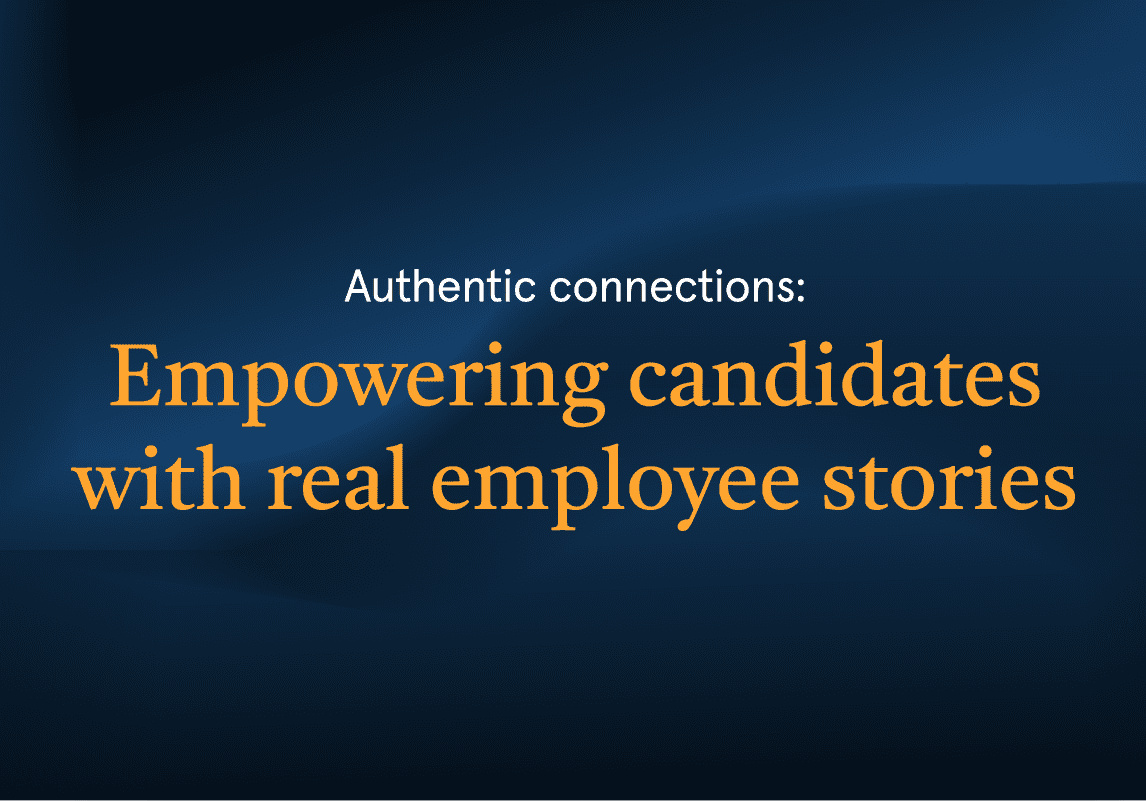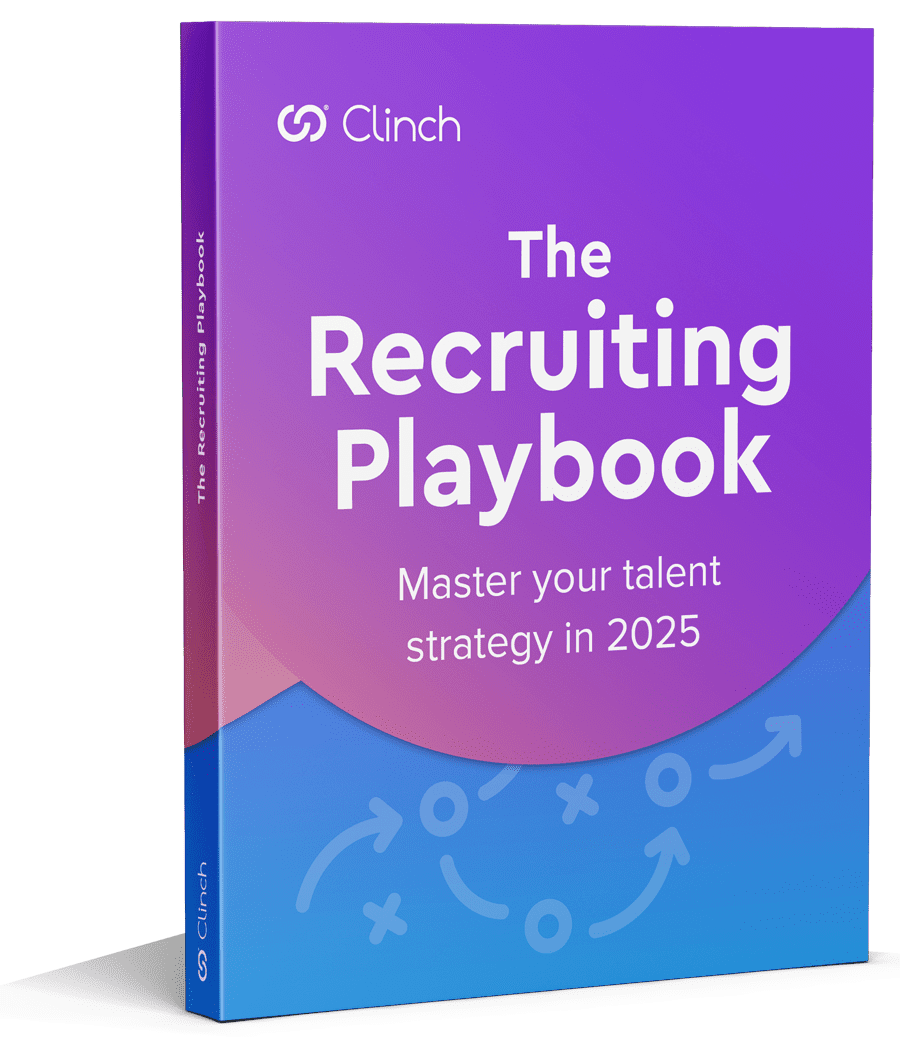How did you find your way into TA, what’s your story?
I was on the path to becoming a clinical psychologist. Halfway through my doctorate program, I started questioning my career path. I’d be doing therapy with children who had gone through horrible situations and I’d take it home with me, and dwell on it, not really being able to separate the two. I’d been doing psychology since high-school and wasn’t sure if it was is for me.
So, I went to a tech cocktail networking event in Chicago with a friend who had a small business and was exhibiting. As I helped him by passing out gumballs, I met the wonderful and inspiring Harvey Daniels who was the head of staffing at the American Medical Association. We got to chatting and he asked if I’d ever considered recruiting?” One month in, I was the top recruitment advertising consultant at the AMA and I was just hooked. I found I could make a positive impact on others’ lives without being their therapist, and still make a difference.
Tell me more about that, your early years.
The reason why I loved psychology is the same reason why I love talent acquisition. I love people, and I’m curious about people —what inspires them, motivates them, their story— so I just have this passion for people which I find a lot of people in our industry have. I mean, if you don’t like people, why are you in our industry? Get out! [laughs]
It’s shaped my approach to talent acquisition. Having that empathy for what they’re going through. Whether it’s creating training for recruiters, or giving employees quality content to share on social media, it’s just the love of people and understanding what makes people tick and how I can help them.
What works best to engage and nurture candidates?
It’s whatever platform that person is comfortable with. We need to make it about them and not us. Maybe a recruiter prefers using email, but the candidate wants to talk on the phone, or maybe the candidate doesn’t want to be called, so no way do you call that person. Great, well maybe they’re more comfortable on Facebook messenger or email or another form.
It’s going to vary between each person: don’t try to force somebody to talk to you on a platform that they’re not comfortable with, because that’s just getting off on the wrong foot. Make it about them, put them front and center if you can.
How about passive prospects?
I’ve struggled with the term “passive candidates” because I feel like everyone is a passive candidate who isn’t an actual applicant for a job. My approach to non applicants is still making it about them, customizing your approach with a little research before you slam them with a spammy message.
If you’re worth your salt you know how to look up that information, and weave that into your approach. Act like a person first and a recruiter second. So that’s my biggest piece of advice for any recruiter; be a human being. Whoever it is, be they active or passive, be a person first and a recruiter second. It seems so basic, but so many of us forget, and just spam the you-know-what out of candidates just sending out these irrelevant, horrible, lazy messages. I’m just surprised that it’s not basic knowledge for people that the stuff we learned in kindergarten as a five year old is just as relevant today as a recruiter.
What’s one of your most favorite campaigns?
What if we had a video where, we could feature recruiters in this amazing, positive light. The public doesn’t have a good understanding of what recruiters do. In fact, there’s way more negative talked about than positive. If you do a Google search for “recruiters,” mostly the words following “recruiters” aren’t very nice. So, what if we did an ad that educated people on our profession? I think that the benefits could be great. Maybe we’ve got little girls and boys aspiring to be recruiters someday. Maybe instead of falling into a TA career people would want to enter into our profession. We could strengthen partnerships with our customers, hiring managers, and improve candidate experience. I think there’s so much that we could do if together we work to elevate people’s view of the profession. That’s one campaign that I would love to see. I don’t think I could do it alone, but I think it’s something that would be amazing to see.
How do you get your company to stand out?
I think that personas are fascinating. There’s an opportunity for our profession to adopt personas, just like traditional marketing has been using for years. If we understand who we’re talking to, who we’re trying to target, and then adjust our messaging, I think that would be a really smart move for us. I’m reading this book that I absolutely love. It’s called, Everybody Writes, by Ann Handley, and she talks about being customer-centric, which means putting your audience at the very front and center in every message you do and don’t just come out talking about me, me, me, my company, my company, but talk about what’s in it for your audience. Should they take a look at this job, should they connect with you. I think most successful campaigns are ones that really put the target audience front and center and put the candidates’ needs before our needs.
What’s the secret to converting great prospects into candidates?
I think candidates want to hear about what’s in it for them and don’t get as excited about free beer or foosball. People aren’t typically staying at the same company or job. They’re going in, they’re making an impact, they’re leaving their mark, they’re able to point to something and say, “I did that, I accomplished that, I made that happen.” So, put that in your messaging. Say specifically, if you come and take this job, you’re going to work on these technologies and this is how you can leave your mark, and paint that picture in a transparent way. If that’s not what’s going to happen, say that, too. But be very transparent. Recently I overheard at a conference someone recommend full transparency in your messaging with candidates and paint a full picture — the good, the bad, and the ugly, and let them opt out of the process if it’s not for them. I loved that.



